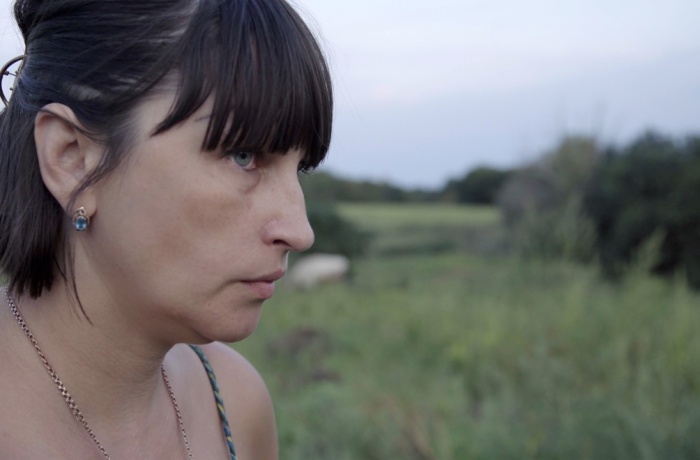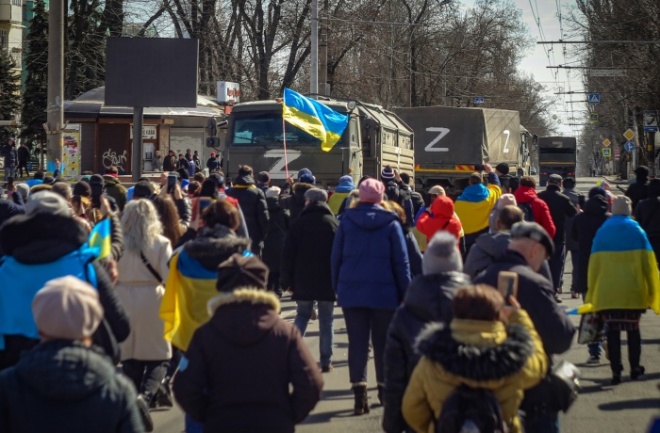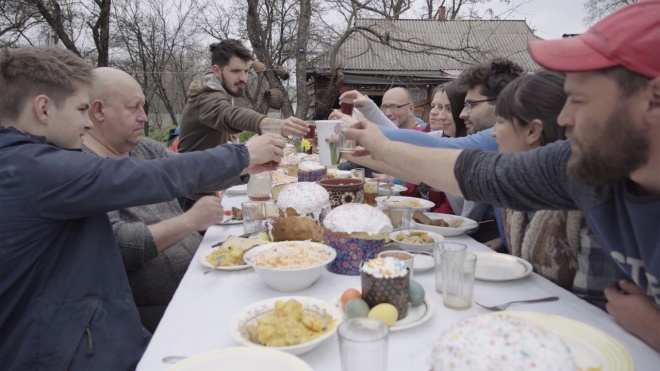The 20th Travelling Docudays UA visited Khmelnytskyi region
The 20th Travelling Docudays UA visited Khmelnytskyi region

This year’s Travelling Docudays UA in Khmelnytskyi, happening from December 1 to 10, was organized by the NGO Podil Legal League.
The December dates for the festival were chosen deliberately. For over a decade, Podil Legal League has been actively involved in human rights protection in Khmelnytskyi region. Consequently, the events within the Travelling Docudays UA were aligned with the international holiday celebrated on December 10, marking the anniversary of the adoption of the Universal Declaration of Human Rights by the UN General Assembly in 1948.
Within the Travelling Docudays UA in Khmelnytskyi region, six screenings followed by discussions took place. The featured films included Unconquered Kherson (dir. Ustyn Danchuk, Vhoru Media Platform), 89 Days (dir. Pavlo Dorohoi), Three Women (dir. Maksym Melnyk), Seeds of Hunger: Ukraine 1933 (dir. Guillaume Ribot), Guests from Kharkiv (dir. Halyna Lavrinets), and Second Wind (dir. Maksym Lukashov).
In addition to screenings and discussions of the films, the Khmelnytskyi audience attended a discussion on Documenting War Crimes and International Justice and an information session on Protecting Human Rights in Times of War: Practical Advice from a Lawyer and Methods of Overcoming Stress: Practical Cases with a psychologist. The human rights events focused on the specifics of documenting war crimes and practical aspects of human rights protection.
This marks the second time that Podil Legal League has organized the Travelling Docudays UA since the onset of the full-scale invasion. This year, the discussions and topics took on a more acute and poignant tone. After the screenings, some viewers were unable to hold back tears, and the military personnel expressed gratitude for the attention given to current challenges.
Except for Three Women, all films were screened offline, which helped the audience to feel the atmosphere of live communication.
On the occasion of the opening of the Travelling Docudays UA in Khmelnytsky, a press conference and a screening of the film Unconquered Kherson took place at the WoodMall Cinema.

A still from Unconquered Kherson
After the screening of Unconquered Kherson, the audience shared their reflections:
“I am from Kherson, so watching this film is tough yet uplifting. It makes me proud to be Ukrainian and to claim Kherson as my hometown. Thank you for addressing such crucial issues. It’s something we all need right now.”
“I’ve been at the frontline since 2014. In this time, I’ve witnessed numerous heroic acts by the military. But the film reminded me of the strength, courage, and faith that civilians have. Only together can we win.”
In addition, the festival organizers maintained their cooperation with the anti-cafe Druzi (eng. Friends). Most offline screenings were held at this venue, known as a hub for young people in Khmelnytskyi and, importantly, as a shelter.
After the screening of the film Guests from Kharkiv at the Druzi anti-cafe, the audience had a chance to speak with the director, Halyna Lavrinets. The film tells the story of Nelia, the owner of Omelkova Khata museum-estate of folklife in the village of Kozubivka, Poltava region. Nelia, along with her husband, assists internally displaced persons (IDPs) from Kharkiv in adapting. As time passes, it becomes obvious that the IDPs aren’t ready for tough physical work in the garden, holding onto the hope that the war will end soon. Unfortunately, without proper care, the planted crops start to suffer.

A still from Guests from Kharkiv
During the discussion with the director, the audience expressed particular interest in a few questions: how did the idea for this film come about? Was it challenging for the main characters to act naturally during filming? What is the fate of the protagonist Nelia and her husband?
Opinions among the audience were diverse. Some were internally displaced individuals from Kharkiv who had experienced situations similar to those depicted in the film. Due to the war, they had to leave the city and adapt to rural life, which proved to be quite challenging. Home isn’t just a physical location; it is also the environment, people, lifestyle, social connections, and loved ones. The consequences of war are not just statistics but also the destinies, lives, and rights of individuals.
One event attendee shared his perspective on the situation: “I’ve lived in the city all my life, so I can’t fathom why I have to work in the garden like this. I’d rather work twice as hard at a job, but not like this. It’s very tough. I’m grateful to the people who provided us shelter in the village, but I wouldn’t want to continue living here.”
The film highlighted the various impacts of war and forced displacement. Interestingly, the IDPs in the audience, who had lived in the village all their lives, couldn’t understand why the film’s protagonists found it difficult to get involved in farming.
Main photo: A still from Guests from Kharkiv.
The 20th Travelling Docudays UA is supported by the Embassy of Sweden in Ukraine, the Embassy of Switzerland in Ukraine, and the US Embassy in Ukraine. Opinions, conclusions, or recommendations do not necessarily reflect the views of the governments, charities, or companies of these countries. The content of this publication is the sole responsibility of its authors.












